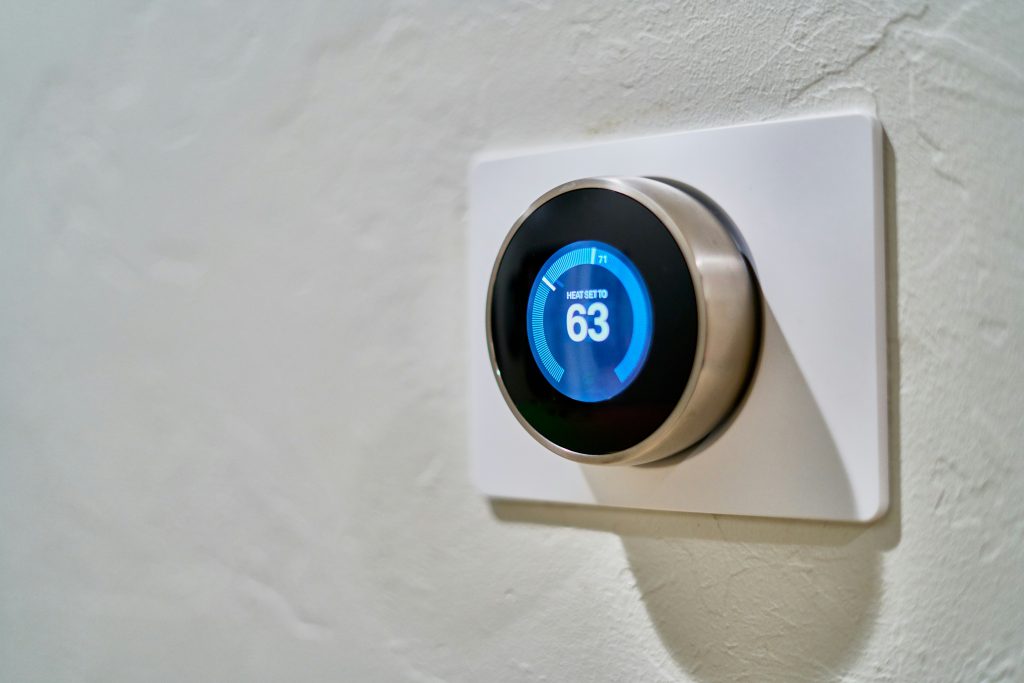Efficient Energy: How Your Air Conditioner Can Reduce Your Energy Bills

Introduction
Did you know that your air conditioner can be an ally in reducing your energy bills? In today's world, where energy costs are on the rise, understanding the importance of energy efficiency in our homes is crucial. Not only does it help save money, but it also contributes to a healthier environment. At Dingdoor, we provide the solutions you need for the proper regular maintenance with Dingdoor of your air conditioning systems, ensuring they operate at peak efficiency.
1. The Importance of Energy Efficiency
Why is Energy Efficiency Crucial?
Energy efficiency refers to using less energy to perform the same task, minimizing waste. Its importance lies in several key aspects:
-
Cost Reduction: By using less energy, households can significantly lower their energy bills.
-
Environmental Benefits: Energy efficiency helps reduce greenhouse gas emissions, combating climate change and preserving the environment.
-
Resource Conservation: Decreasing energy demand reduces the need to extract and process natural resources, conserving them for future generations.
-
Economic Competitiveness: Businesses that adopt energy-efficient practices can lower operational costs and enhance their image among consumers.
-
Energy Security: Reducing reliance on non-renewable energy sources improves a country's energy security, decreasing vulnerability to price fluctuations and supply disruptions.
-
Innovation and Technological Development: The pursuit of more efficient solutions drives innovation and the development of new technologies, creating business and employment opportunities.
-
Health and Well-being: Energy efficiency can improve air quality and public health by reducing pollution associated with energy production and consumption.
In summary, energy efficiency is fundamental not only for the economy but also for social and environmental well-being. Implementing energy-efficient measures is a key strategy for a sustainable future.
2. Understanding How Your Air Conditioner Works
Understanding the Functioning of Your Air Conditioner
An air conditioner operates through a refrigeration cycle involving several key components:
-
Heat Absorption: Warm air from inside the house is drawn in and passes through an evaporator.
-
Cooling: In the evaporator, the warm air is cooled by a refrigerant that evaporates at low pressure. This cool air is then distributed throughout the home.
-
Refrigerant Compression: Once the refrigerant absorbs heat and turns into vapor, it is sent to the compressor, where the vapor is compressed, raising its temperature.
-
Condensation: The hot vapor moves to the condenser, where it cools and turns back into liquid by releasing heat outside.
-
Continuous Cycle: This cycle repeats continuously to maintain a comfortable temperature indoors.
Different types of air conditioning systems exist, including central and portable units. The design and installation of these systems significantly affect their efficiency.
3. Tips to Make Your Air Conditioner More Efficient
Improve the Efficiency of Your Air Conditioner
-
Temperature Adjustment: Set your thermostat to an optimal temperature (around 24-26°C or 75-78°F). Using programmable thermostats can help manage energy use effectively.
-
Regular Mantenimiento con Dingdoor: Regularly cleaning filters and coils is essential. Professional maintenance can enhance efficiency and prolong the lifespan of your system.
-
Use of Fans: Ceiling fans can complement your air conditioning by circulating cool air more evenly throughout your home.
-
Insulation and Sealing: Improve window and door insulation. Use curtains or blinds to block out heat during the hottest parts of the day.
4. Economic Benefits of an Efficient Air Conditioner
Save Money with an Efficient Air Conditioner
Implementing energy-efficient practices can lead to significant savings. For instance, many users report a noticeable reduction in their energy bills after making simple adjustments.
-
Before and After Comparisons: Households that upgraded to more efficient systems often see a reduction in energy costs by 20-50%.
-
User Testimonials: Many users have shared their experiences of reduced costs after regular maintenance and efficiency upgrades.
-
Small Modifications, Big Impact: Simple changes, like adjusting the thermostat or cleaning filters, can lead to substantial savings over time.
5. Common Myths About Air Conditioning and Energy Efficiency
Demystifying Air Conditioning Efficiency
-
Myth 1: "Setting the thermostat to the lowest temperature cools faster." In reality, the system cools at the same rate, and this just increases energy consumption.
-
Myth 2: "Turning off the air conditioner when not home saves energy." Keeping it on at a higher temperature is often more efficient than letting the house heat up and then cooling it down again.
-
Myth 3: "Larger air conditioners are always better." An oversized unit can lead to inefficiency and increased energy costs due to frequent cycling.
6. Conclusion
In summary, with the right adjustments and regular mantenimiento con Dingdoor, it is possible to significantly reduce energy bills. By understanding how your air conditioning system works and implementing energy-efficient practices, you can enjoy a comfortable home while saving money. Consider scheduling regular maintenance with Dingdoor to maximize your air conditioner's efficiency.

